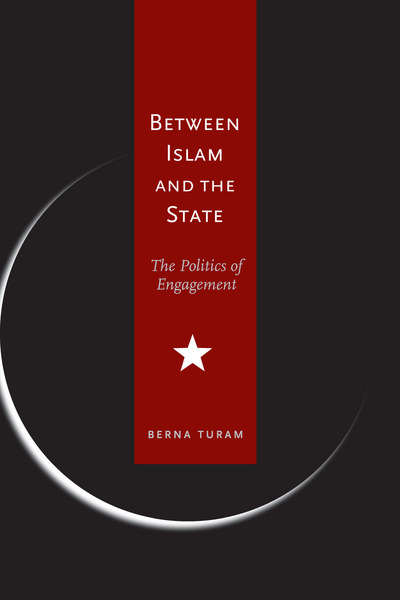
2006
240 pages.
from $30.00
Hardcover ISBN: 9780804755009
Paperback ISBN: 9780804755016
Ebook ISBN: 9780804768214
Throughout the Middle East, the clash between Islamic forces and authoritarian states has undermined many democratization efforts. But in Turkey, Islamic actors—from the Gülen movement to the pro-Islamist Justice and Development Party—have been able to negotiate the terms of secular liberal democracy. This book explores the socio-political conditions and cultural venues in which Islamic movements cease to confront and start to cooperate with secular states.
Though both the Gülen and JP have ambivalent attitudes toward individual freedoms and various aspects of civil society, their continuing engagements with the state have encouraged democracy in Turkey. As they contest issues of education and morality but cooperate in ethnic and gender politics, they redraw the boundaries between public sites and private lives. Showing opportunities for engagement between Islam and the state, from Turkey to Kazakhstan to the United States, Between Islam and the State illustrates a successful means of negotiating between religion and politics.
About the author
Berna Turam is Assistant Professor of Sociology and Middle East Studies at Hampshire College.
"Between Islam and the State is a very good book that has a timely question and intriguing cases. The Turkish experience is full of lessons for those who are interested in Islam-state relations in other Muslim countries. This book, therefore, is a candidate to become a must-read for the students of Middle Eastern politics in particular and of religion and politics in general."
—Comparative Political Studies
"Berna Turam's book is one of the best to have been published recently on the interaction between Islam and the secular state in Turkey . . . Her study stands as an excellent analysis of what one might call 'Turkish exceptionalism.' As such, it is must reading of anyone who wishes to understand contemporary Turkey and the implications of the Turkish experience for other Muslim-majority countries."
—The Middle East Journal
"Turam's book is an excellent counterintuitive account of Turkish politics in the last ten years . . . Turam shows how a non-confrontational politics have allowed the Turkish secular state and the Islam-inspired Gulen movement and the Justice and Development Party (known by its Turkish acronym AKP) to interact, reshape each other, and expand democratic institutions."
—Contemporary Sociology
"Turam's richly researched book . . . makes an extremely important contribution to understanding the relationship between the state and Islamic political actors. Rich detail shows political Islam as a complex and contradictory phenomenon. Islamic political actors engage with various aspects of modern life on an ongoing basis and the outcome of this engagement is not necessarily conflict and confrontation. Perhaps an even more significant observation to emerge from this book is that the representation of Islamic actors in public discourse can encourage engagement and foster social and political pluralization in the public sphere."
—Canadian Journal of Sociology
"The book is a fine contribution to the scholarship on the negotiation of secularism."
—CHOICE
"The need to understand Islam is obvious. Berna Turam's elegant and incisive ethnography of Turkey's Gülenist movement makes a major contribution in showing tension and diversity within the Islamic world."
—John A. Hall, McGill University
"In dealing with Islam, books have seemed incapable of going beyond terrorism, jihad, and al-Qaeda. But, Berna Turam ably demonstrates that Islam has multiple faces and diverse ways of dealing with the existing secular world. For anyone who wants to understand the evolving role of Islam in the Middle East and beyond, Between Islam and the State is a must read."
—Joel Migdal, University of Washington
"As a sharp contrast to their historical confrontational relationship, the author explores the sources, nature and outcomes of emergent engagements between Islam and the state A compelling read, well-written and extraordinarily honest, this study looks beyond the actions and agendas of political leaders and the party agendas and delves into the heart of everyday life."
—The Muslim World Book Review
"Overall, Turam's Between Islam and the State is an insightful study on the relations between the state and Islam in Turkey, and makes an illuminating methodological contribution to the subject. It is a must-read for students of state-Islam relations and democracy, and for those who seek to understand the changes that have been occurring in Turkey throughout the last decade."
—Insight Turkey
"All in all, this book can be highly recommended to students of Islam who wish to escape from the neo-orientalist flaws of literature on Islam."
—ISAM: Turkish Journal of Islamic Studies
"Berna Turam's study of Islam and democracy in Turkey also advances debates about Islamist moderation. She tackles a crucial case study—Turkey's mainstream Islamists—because Turkey would seem to be a case of exclusion leading to moderation . . . [Turam] emphasizes everyday interactions, rather than a focus on the inclusion of Islamists into electoral politics or the formal political system . . . Turam draws attention to a whole political context and not merely to a sequence of mechanisms that affect the behaviors and/or ideologies of discrete Islamist groups and individuals."
—Jillian Schwedler, World Politics
"Turam's study provides valuable insights into the mental framework of large sections of Turkish society."
—Lutz Berger, National Identities
"Turam's essay is an important contribution to the Islam–state interface in Turkey. Not only does it refute the received wisdom concerning that relationship, which has long attributed less than valid motives to both the Islamic actors and the secularists in Turkey, but it also to a great extent explains the evolving dynamics behind that interface . . . This essay deserves to be a must-read for students of the Islam–state relationship both in Turkey and elsewhere."
—Turkish Studies